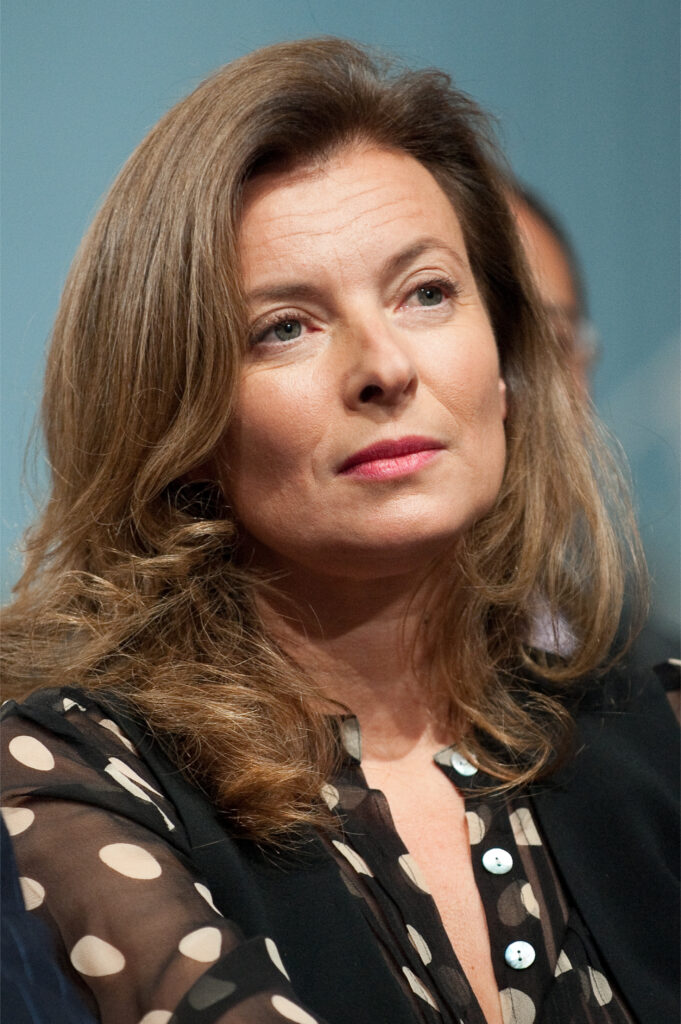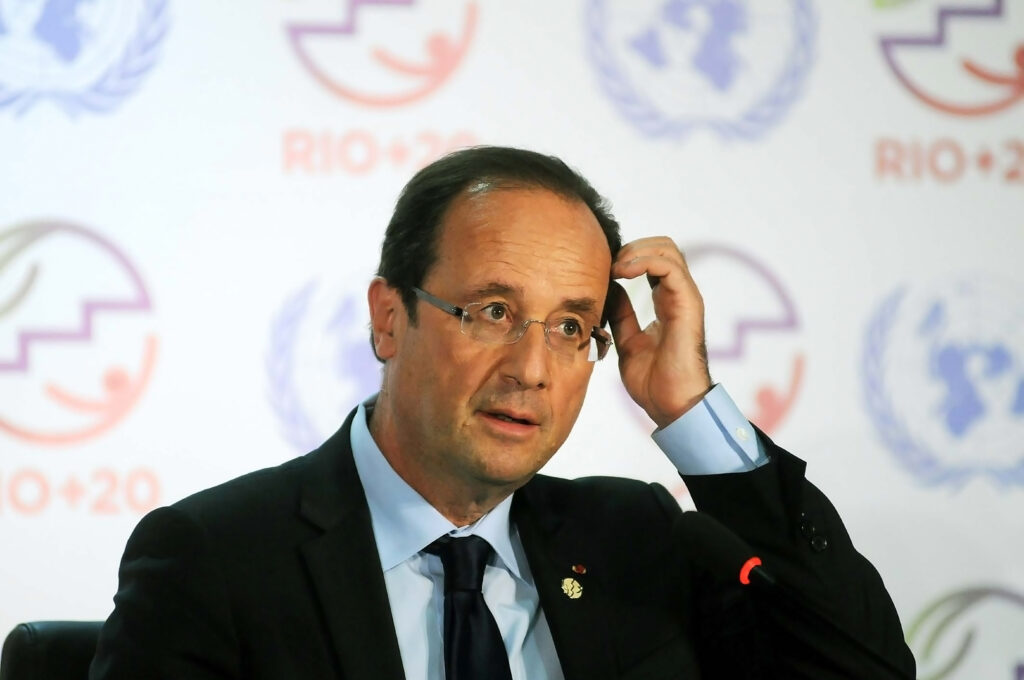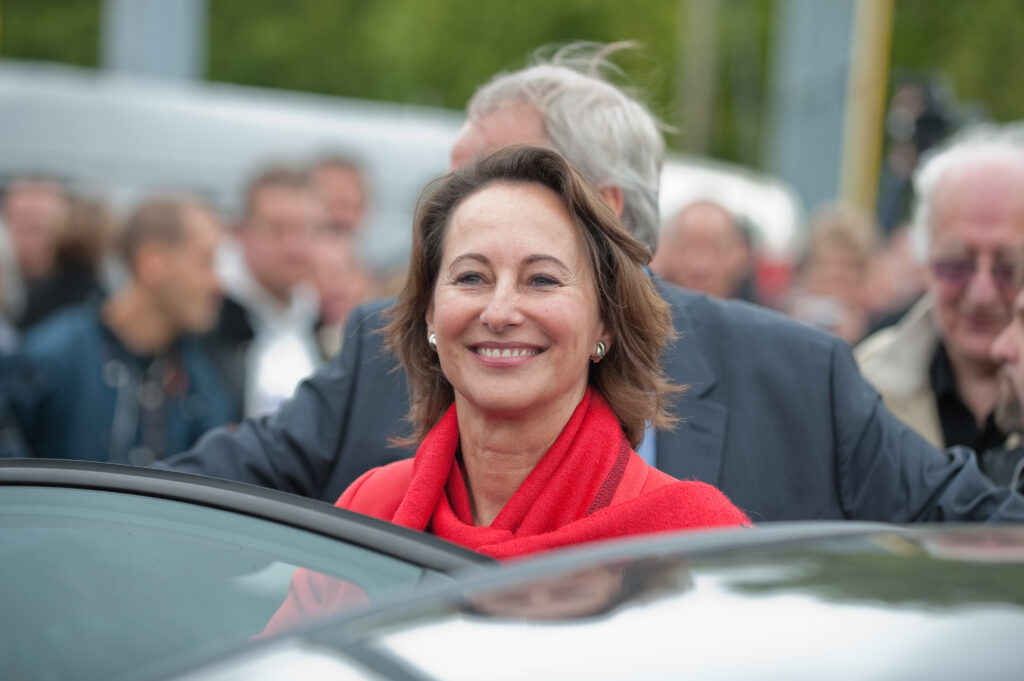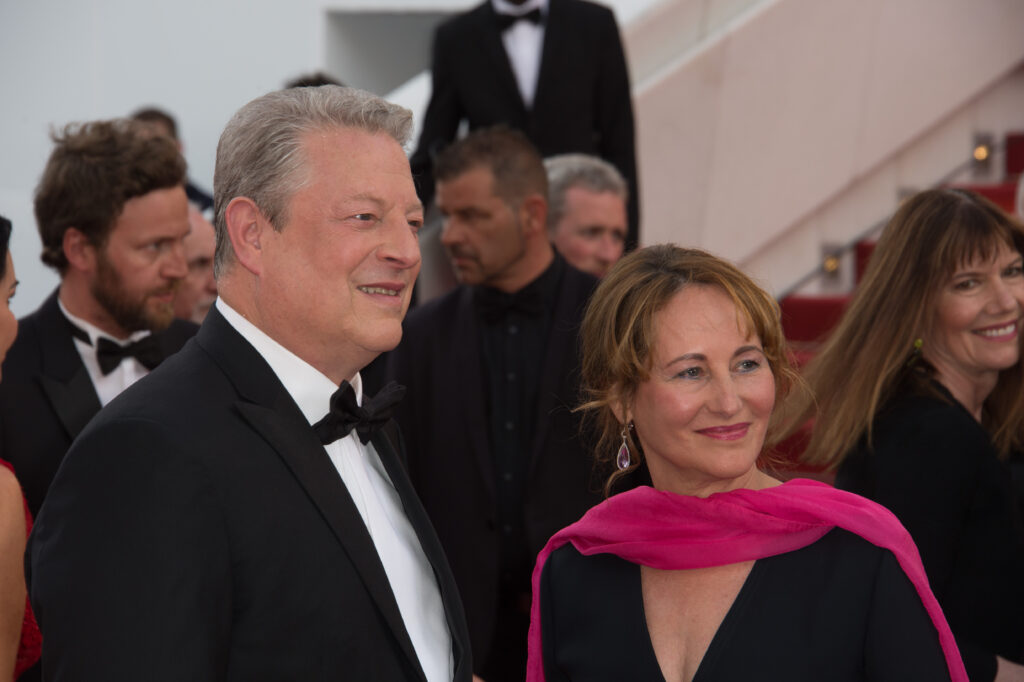Valerie Karenina

She had it all.
Valérie Trierweiler was beautiful. She was a political journalist for Paris-Match. She divided her time between a home in the country in L’Isle Adam, forty kilometers from Paris, and her high-profile work in the capital. She was married to a fellow journalist; the first time she saw him, she tells us, she knew that he was the man she wanted to be the father of her children. They had three sons together.

She left everything for François Hollande, serving at the time as the head of the Socialist Party. A man whose eventual success proved, as many would say, that charisma isn’t everything.

They had known each other for years, since 1988, in a casual way; and then they started exchanging glances too frequently, they lingered a bit too long over business lunches, they found too many excuses to pass close to each other in the corridors of the Assembly. The inevitable happened: she accompanied him to Tulle in the spring of 2005, to cover a political event for Paris-Match. He was staying overnight in Tulle, his home constituency; she was staying in Limoges. They had dinner together in Limoges. He did not drive on to Tulle that night.
There were many awkward moments yet to navigate. Trierweiler divorced her husband. Hollande did not believe in marriage, but he was a part of a very well-known and established couple: he and Ségolène Royal, together since the late 1970s as the youthful faces of the Socialist Party, had four children. Ségolène was running for president of the French Republic.
Yes. You read that correctly. Ségolène Royal was the Socialist Party candidate for president of the Fifth French Republic.

Thus Valérie and François were forced to delay the announcement of their new relationship.
Then Royal lost to Nicholas Sarkozy. She and François made a joint statement that they were no longer together.
When Hollande ran for president five years later, Valérie was by his side, but France had never had an unmarried first lady, as many journalists were quick to point out. She herself recalls the awkwardness, the sense of not belonging, that she felt in joining François. She attributed it to the fact that she was on the other side of the camera now, as a subject of journalism instead of as a journalist, but one suspects that the problem was not exactly that. She announced her intention to remain a journalist. She rejected the title of “First Lady,” saying that perhaps they should call her “First Journalist,” which was silly and rather presumptuous, anyway.
From the beginning, the press seemed not to to take to her. They insisted, as on the night of his presidential victory, on May 6, 2012, upon juxtaposing Hollande’s “two women” in their coverage. On the night of his victory, on May 6, 2012, Hollande deliberately walked through a joyous crowd to kiss Ségolène on both cheeks. When he walked back to Valérie, the press accused her of demanding that he kiss her on the lips–“sur la bouche,”–a part of their effort, as she notes, to portray her as a dominatrix. But really, she writes, how could she have known that they could read her lips? “This new world was not made for me,” she concluded (pp. 174-175, https://youtu.be/yWVYChMqH1o).
And then there was the fact that Ségolène had become the wronged woman, who had bravely endured the losses of both the election and her life-partner. As Valérie tells us in her memoir, a public relations specialist suggested she be photographed with her sons, so the French might see her as a mother instead of a homewrecker. She had angrily rejected the instrumentalization of her children.
It probably did not help, later on, when Hollande appointed Ségolène as his Minister of Ecological Transition.

Still, Valérie was with “the love of my life (l’homme de ma vie).” They lived in the Élysée Palace. He was President of the Fifth Republic of France!
Then it all came crashing down. Hollande was caught by photographers one night on his scooter (yes, scooter) heading for the apartment of the actress Julie Gayet, a moment that gave rise to a short-lived, probably non-existent, video game.
After the initial shock, Valérie hoped they could talk, find a way forward. As she later learned, Hollande was having that talk–with his advisors. The relationship, as far as he was concerned, was over; how could he get her out of the Palace?
He enlisted the help of her friends, who persuaded her to check into the Salpêtrière-La Pitié hospital for an ill-defined and face-saving sort of collapse.
Bereft, abandoned, she did not throw herself in front of the métro. Instead she wrote a book.
Merci pour ce moment (Thank you for this moment) is a splendid book, a realistic account of the end of an affair (the relationship seems no more substantial than that), cloaked in melodrama. We almost forgive Hollande for his caddish behavior, as she also spares herself nothing: the handfuls of sleeping pills swallowed dramatically in his presence (at least twice), the moment when she explained to him in detail how he was destroying his presidency (he said he didn’t want to talk about it anymore). But this is, after all, a memoir structured as a romance: we even read some descriptions of her clothing and learn that he hated her high heels, which made her taller than he was. (Yet she continued to wear them.)
The brilliance, however, comes in the construction of the book. She begins with the revelation of infidelity (his, that is, with Julie Gayet). And then she obsessively returns to the same subject–her relationship with François–from multiple angles, from her early career as a journalist, from her childhood, from their early acquaintance when he was chair of the Socialist Party. (She was the only one who could imagine that he would ever amount to anything.)
And then she hits him–hard.
To be continued.